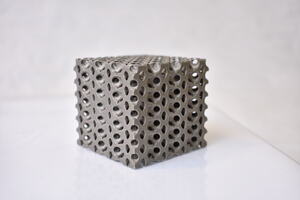Course overview
- Provider
- Futurelearn
- Course type
- Free trial availiable
- Deadline
- Flexible
- Duration
- 3 hours
- Course author
- Ilkka Poutiainen
Description
Traditional subtractive manufacturing methods often limit the types of geometries that can be produced. Therefore, industries have favoured parts with simple geometries to keep their costs low.
Additive manufacturing, or 3D printing, can help overcome these barriers, providing a simple and cost-effective way to produce parts with specific characteristics, such as electrodes.
On this three-week course, you’ll explore AM-driven innovations to understand how businesses can profit from this method. You’ll identify how different industrial areas can implement AM in their process, and how this can impact sustainability.
Understand the Design for Additive Manufacturing (DfAM) processAdditive manufacturing can produce products with a much higher degree of complexity by using DfAM – a design optimisation process.
You’ll learn how DfAM is used to maximise part functionality, reduce the cost and time of additive manufacturing, and drive sustainable changes in different industries.
You’ll also learn how to apply the DfAM methods depending on the requirements of the end application.
Explore future trends in metal additive manufacturing in the chemical industrySeparation and purification processes have generated interest in various industry fields, such as chemical and process engineering. You’ll explore the application of metal additive manufacturing in the industry for separation, purification, and hydraulic blocks.
You’ll also assess the benefits and limitations of AM in the chemical industry to broaden your understanding.
With a close look at the sustainability requirements, you’ll finish the course with the knowledge of how the use of AM impacts sustainability.
Similar courses

-
7 hours
-
29 lessonsCertificate

-
5 hours
-
29 lessonsCertificate


